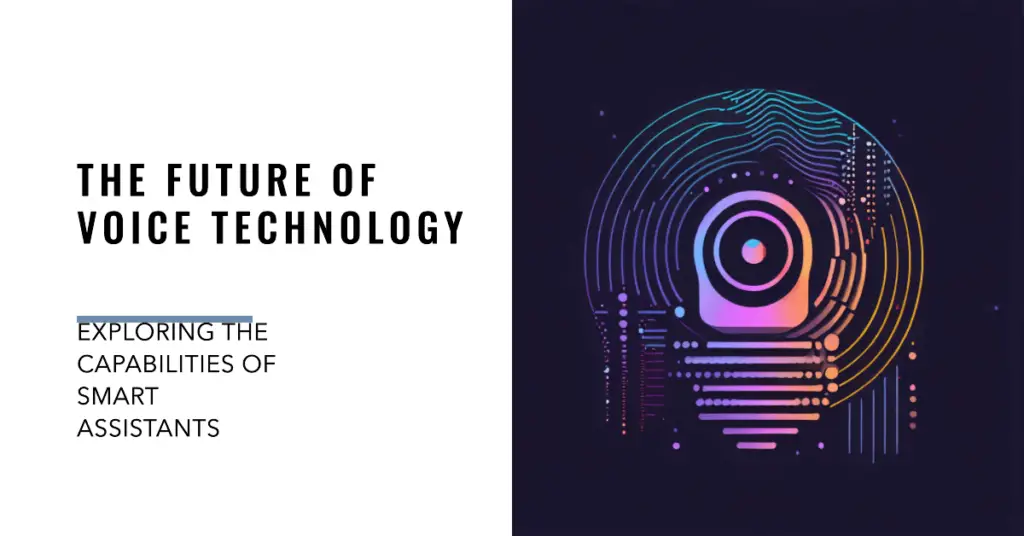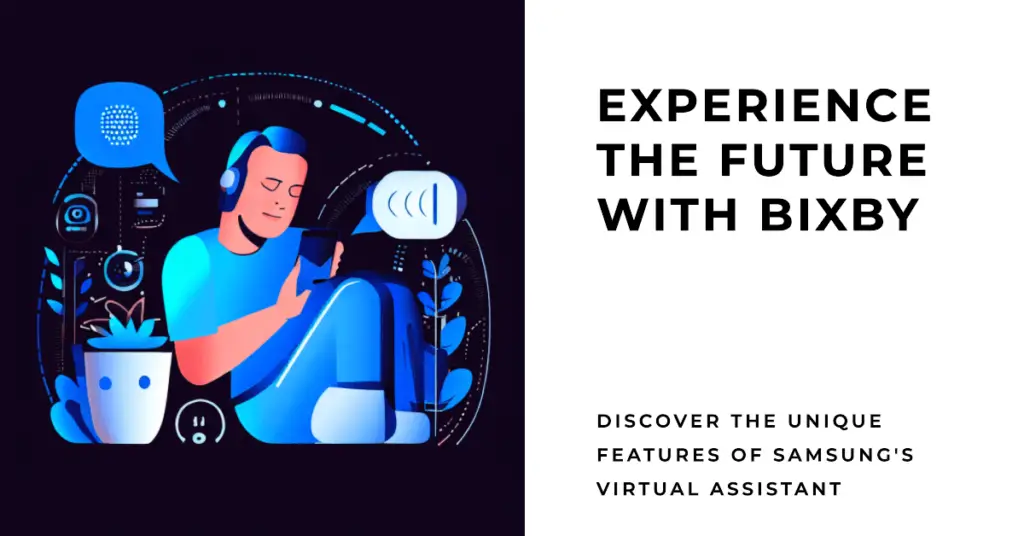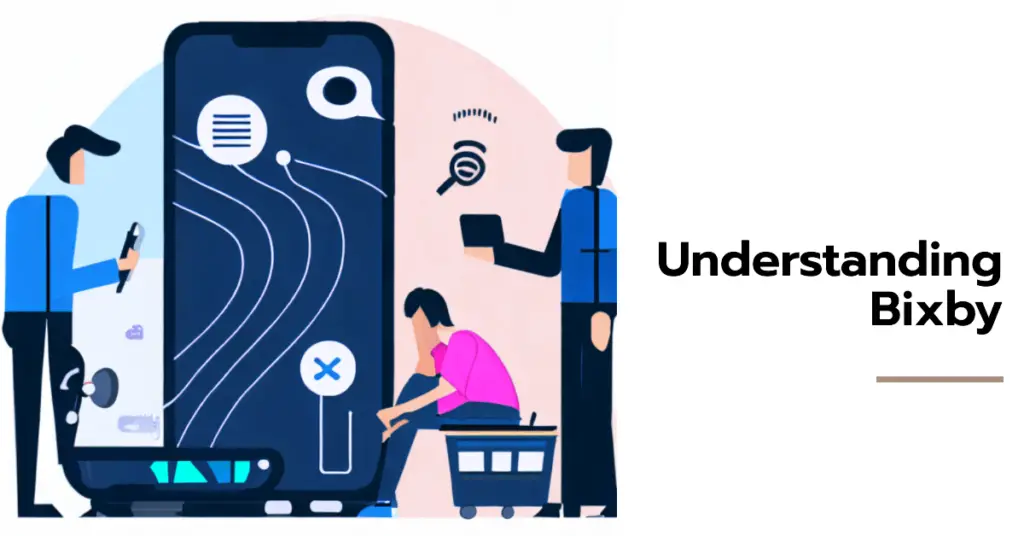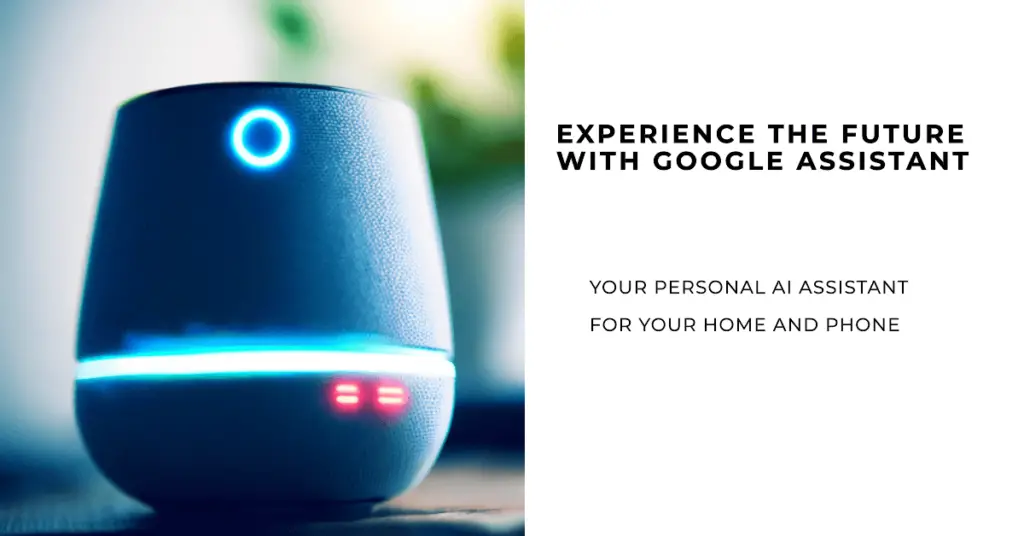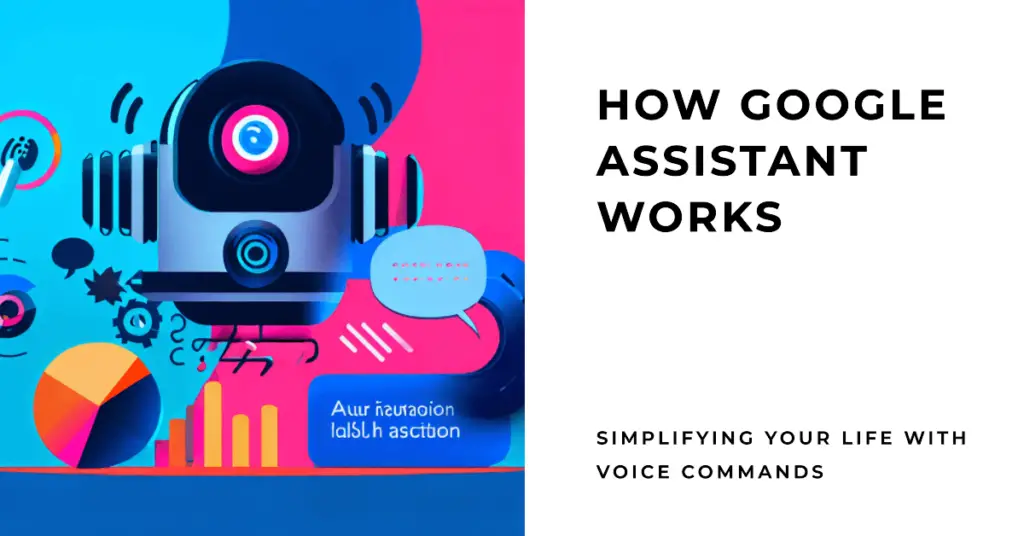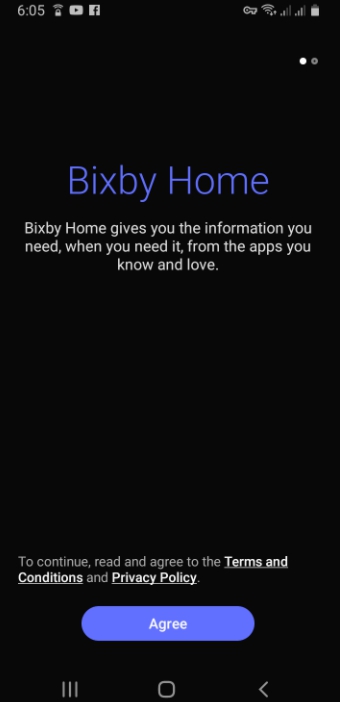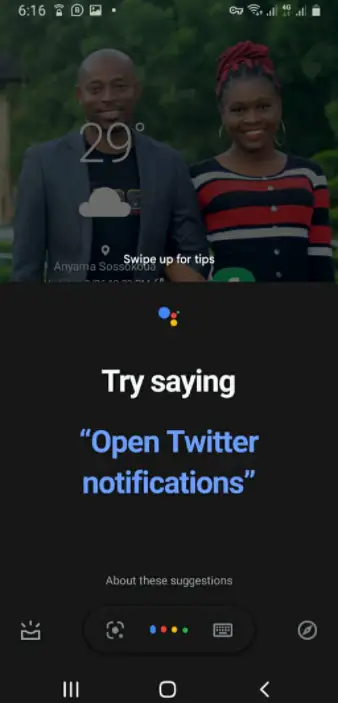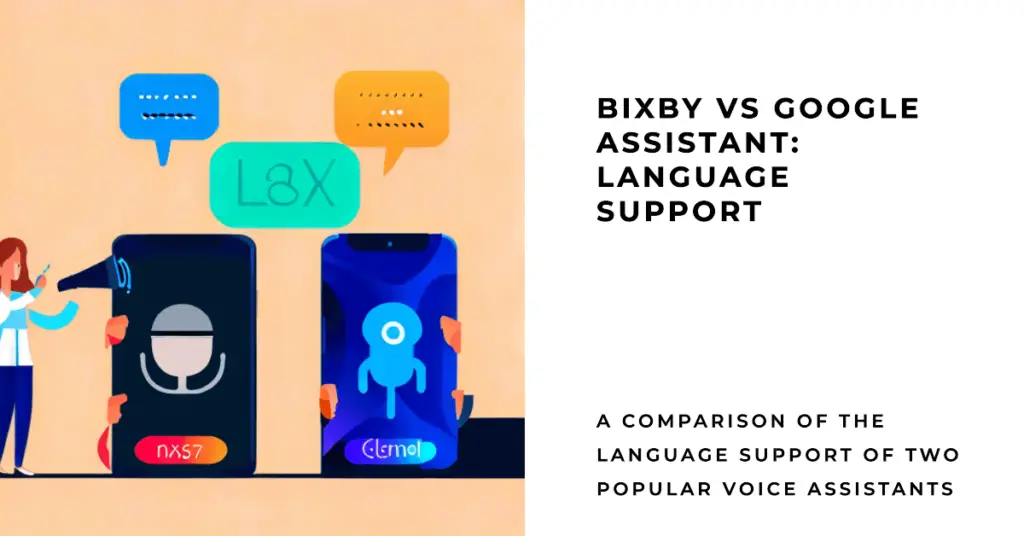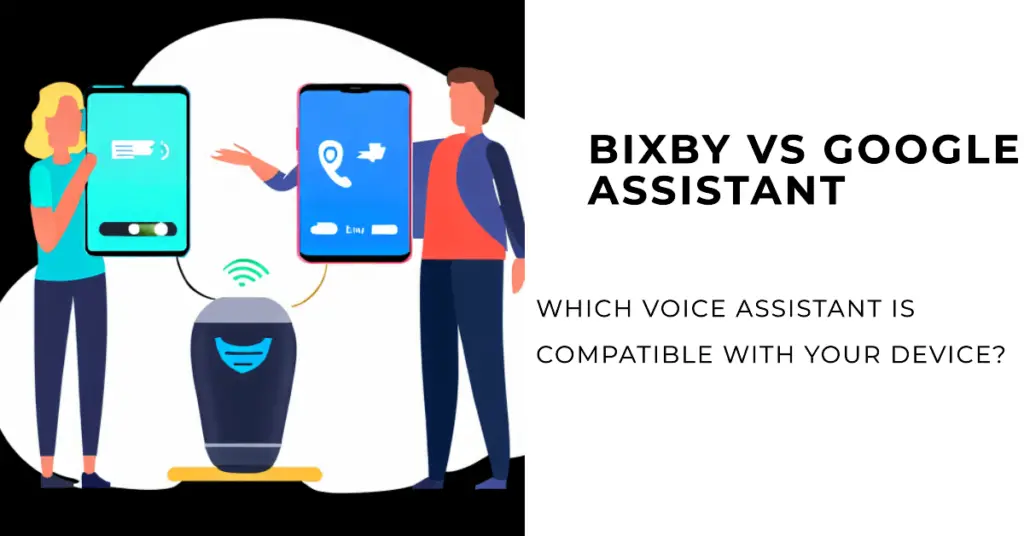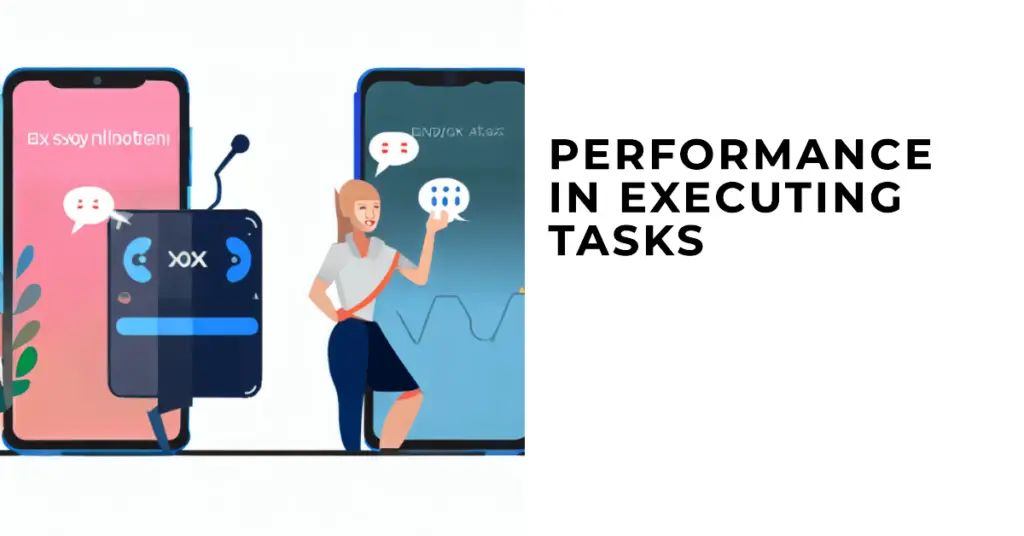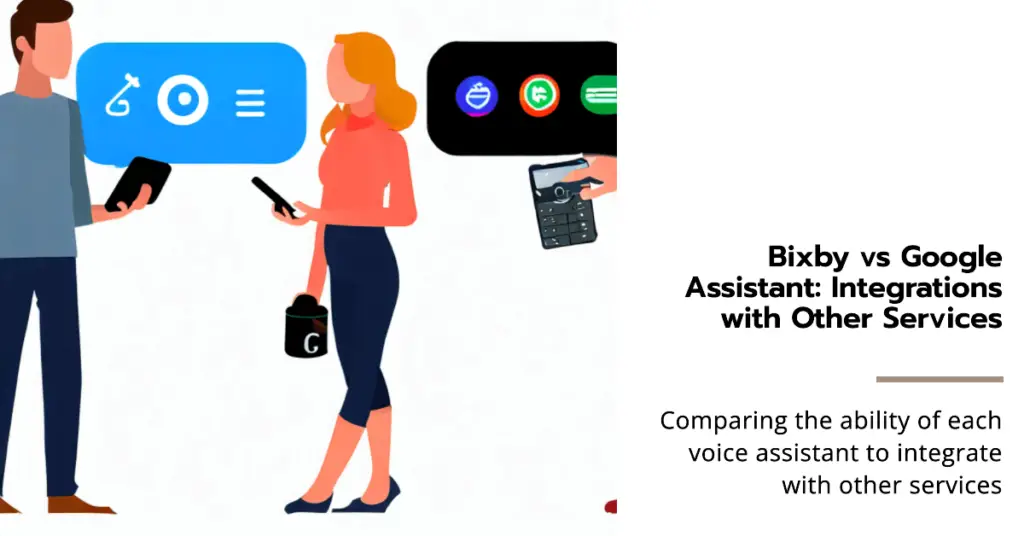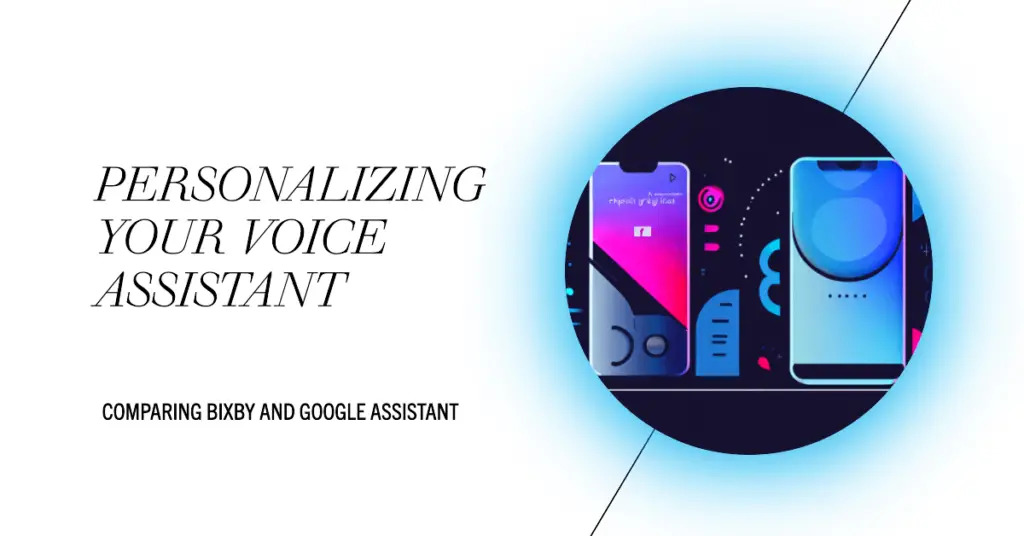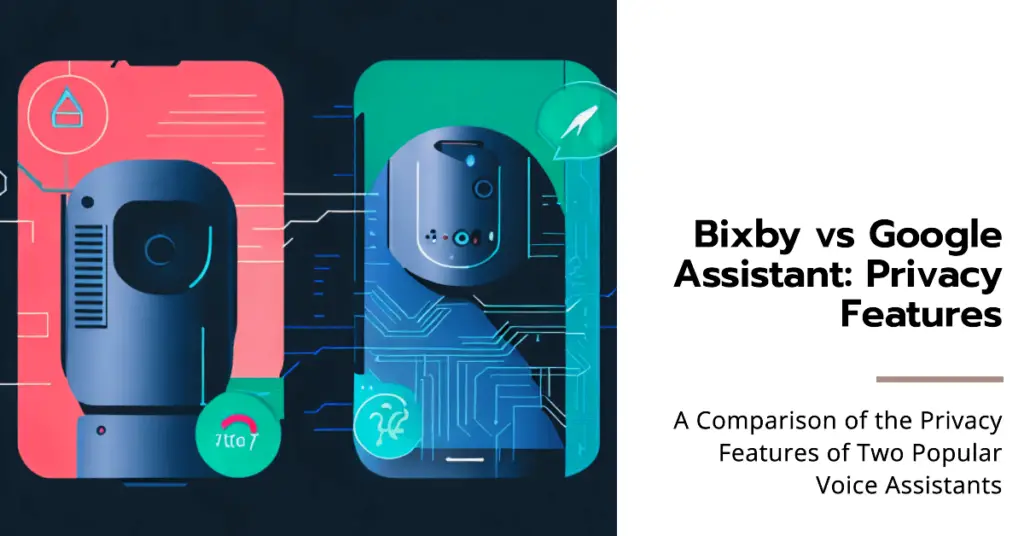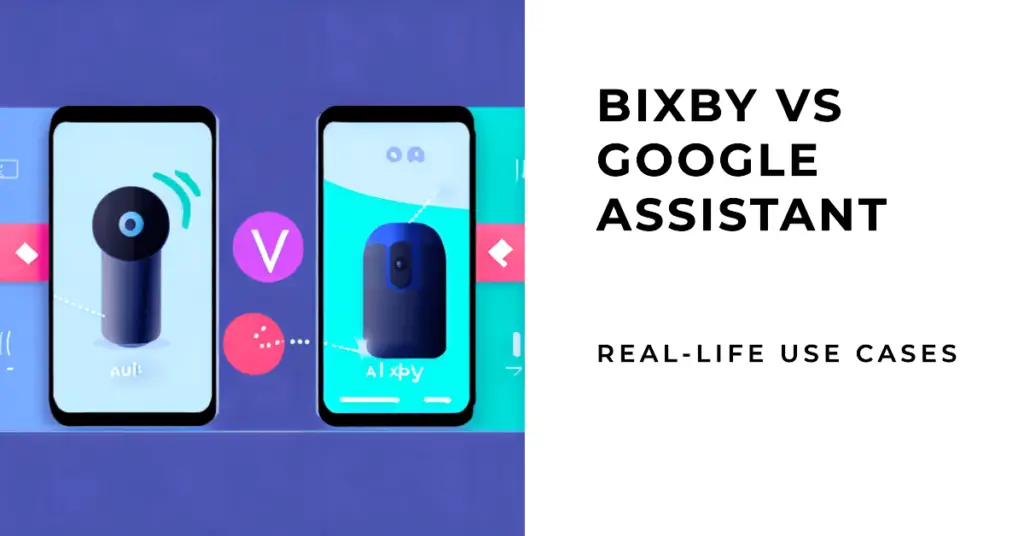In today’s fast-paced world, digital assistants are essential to our everyday lives. They help us manage our schedules, answer our queries, control our smart home devices, and much more.
But with so many options available, choosing the right one can often be daunting. One common dilemma users often find themselves in is the “Bixby vs Google Assistant” debate.
While Google Assistant has been around for a while and has a strong foothold in the market, Samsung’s Bixby is gradually gaining recognition for its unique capabilities.
Both offer many features, leading to the critical question – Which one should you choose? Selecting the wrong assistant could leave you struggling with compatibility issues, lackluster performance, or insufficient integration with your favorite services.
In this in-depth comparison, we will analyze Bixby and Google Assistant, exploring their strengths and weaknesses, usability, device compatibility, personalization, privacy features, and more.
By the end of this article, you’ll clearly understand which digital assistant is the best fit for you and your lifestyle, helping you maximize productivity and minimize frustration in your digital interactions.
Let’s dive in and settle the “Bixby vs Google Assistant” debate once and for all!
Understanding Smart Assistants
Smart assistants have become integral to our daily lives, revolutionizing how we interact with technology and augmenting productivity.
These intelligent virtual companions, powered by advanced artificial intelligence (AI) algorithms, are designed to understand and respond to human voice commands. Smart assistants such as Alexa, Siri, and Google Assistant have gained widespread popularity with their ability to process natural language.
Smart assistants have many features, from simple tasks like setting reminders and alarms to more complex actions like playing music, answering queries, and controlling smart home devices.
These virtual assistants rely on machine learning algorithms to continuously learn and improve their performance, adapting to the user’s preferences and habits over time.
To operate a smart assistant effectively, users must understand the underlying technology and its limitations. It’s crucial to provide clear and concise commands, using precise terminology to convey specific instructions.
By incorporating contextual cues and utilizing the wake word to initiate interactions, users can enhance the accuracy and efficiency of their smart assistant experience.
Furthermore, understanding the privacy and security implications of smart assistants is paramount. As these devices constantly listen for commands, it’s essential to be aware of potential data breaches or unauthorized access. Regularly reviewing privacy settings, limiting data sharing, and ensuring robust security measures can mitigate these risks.
In conclusion, smart assistants have transformed how we interact with technology, simplifying tasks and providing personalized experiences.
By comprehending the intricacies of these virtual companions, users can maximize their utility while safeguarding their privacy and security. Embracing the potential of smart assistants enables us to unlock a new realm of efficiency and convenience in our daily lives.
Introduction to Bixby
Bixby, the virtual assistant developed by Samsung, has an intriguing history and an impressive journey of evolution. Since its inception, Bixby has undergone significant advancements, establishing itself as a prominent player in the realm of virtual assistants.
Bixby’s story began in 2017 with its debut on the Samsung Galaxy S8 smartphone. It aimed to provide users with a seamless voice-based interaction platform that competes with established virtual assistants such as Siri and Google Assistant. In its initial version, Bixby showcased fundamental functionalities, including voice commands, device control, and basic information retrieval.
Over time, Bixby underwent noteworthy improvements. The release of Bixby 2.0 introduced enhanced natural language processing and contextual understanding, enabling more accurate and nuanced interactions.
Samsung’s commitment to refining Bixby’s intelligence and user-friendliness led to the launch of Bixby 3.0, which demonstrated improved machine-learning capabilities and greater personalization.
One significant aspect of Bixby’s evolution is its integration across various Samsung devices, including smartphones, tablets, smart TVs, and home appliances. This integration transformed Bixby into a powerful hub for effortlessly managing the entire Samsung ecosystem.
Furthermore, Samsung’s decision to open up Bixby’s development platform to third-party developers facilitated the creation of Bixby capsules, expanding Bixby’s functionality through voice-enabled apps. This openness fostered a vibrant ecosystem, enriching Bixby’s utility and adaptability.
In conclusion, the history and evolution of Bixby exemplify Samsung’s commitment to delivering an advanced virtual assistant that seamlessly integrates into users’ lives.
With continuous enhancements, integrations, and a diverse ecosystem, Bixby has solidified its position as a formidable virtual assistant, offering a versatile and personalized experience across a broad range of Samsung devices.
Unique Features of Bixby
Regarding virtual assistants, Bixby stands out with its distinctive and innovative features. Developed by Samsung, Bixby offers a range of functionalities that set it apart from other virtual assistants in the market.
One of the unique features of Bixby is its Bixby Vision. This feature utilizes the smartphone’s camera to provide users with an augmented reality experience. Bixby Vision can recognize objects, landmarks, and even text, offering real-time translations and providing users contextual information about their surroundings.
Another standout feature is Bixby Routines, which allows users to automate their device’s functions based on specific triggers and conditions.
With Bixby Routines, users can create personalized routines that adjust various settings, launch specific apps, or perform designated actions automatically. It adds a level of convenience and customization to the user experience.
Bixby also boasts Bixby Home, a dedicated screen providing users with personalized information and recommendations. Bixby Home intelligently curates content based on the user’s preferences, usage patterns, and context, offering quick access to relevant information, such as weather updates, news, reminders, and suggested actions.
Additionally, Bixby’s Quick Commands feature allows users to create customized voice commands for executing multiple actions simultaneously. By creating personalized shortcuts, users can accomplish complex tasks with a single phrase, enhancing efficiency and productivity.
Furthermore, Bixby offers seamless integration with various Samsung devices through its SmartThings platform. Users can control and manage their smart home devices, such as lights, thermostats, and appliances, using Bixby’s voice commands, creating a unified and convenient smart home experience.
In conclusion, Bixby distinguishes itself with its unique and innovative features. From Bixby Vision’s augmented reality capabilities to Bixby Routines’ automation and personalization, Bixby offers a versatile and tailored user experience.
With Bixby Home, Quick Commands, and seamless integration with SmartThings, Bixby continues to push the boundaries of what a virtual assistant can do, providing users with a powerful and intuitive companion in their daily lives.
Understanding How Bixby Works
To truly harness the power of Bixby, it is essential to gain an understanding of how this intelligent virtual assistant operates. Powered by advanced artificial intelligence (AI) algorithms, Bixby employs a combination of sophisticated technologies to deliver its impressive functionalities.
At the core of Bixby’s operation is natural language processing (NLP), a branch of AI that enables machines to understand and interpret human language. Using NLP, Bixby can comprehend voice commands and queries, allowing users to interact with the virtual assistant using everyday language.
Bixby’s functionality is further enhanced through machine learning techniques. Through continuous exposure to user interactions, Bixby learns and adapts to individual preferences, patterns, and habits. This enables it to provide increasingly personalized responses and recommendations over time.
Bixby also utilizes deep learning, a subset of machine learning, to quickly process and analyze vast amounts of data. This allows Bixby to recognize patterns, extract meaning, and provide users with accurate and contextually relevant information.
To ensure seamless integration with various devices and applications, Bixby employs application programming interfaces (APIs). APIs serve as bridges enabling communication and data exchange between software components. Bixby leverages APIs to access and control apps, services, and smart devices, expanding its capabilities and providing users with a unified experience.
Moreover, Bixby operates on the principle of context awareness. It strives to understand the user’s context by considering location, time, and previous interactions. This contextual understanding allows Bixby to provide more precise and relevant responses, delivering a personalized and tailored experience.
Additionally, Bixby’s voice recognition technology is critical to its functionality. By employing advanced algorithms and voice models, Bixby can accurately decipher and interpret spoken commands, ensuring a seamless and natural interaction between the user and the virtual assistant.
In conclusion, understanding how Bixby works sheds light on the intricate technologies that power this intelligent virtual assistant.
Through natural language processing, machine learning, deep learning, and context awareness, Bixby can comprehend user commands, provide personalized responses, and seamlessly integrate with various devices and applications.
By harnessing these technologies, Bixby delivers a sophisticated and intuitive user experience, enhancing productivity and convenience in our daily lives.
Introduction to Google Assistant
The history and evolution of Google Assistant showcase its remarkable journey from its inception to becoming one of the most widely used virtual assistants today. Introduced by Google, this AI-powered assistant has continually evolved, offering an array of features and enhancing user experiences.
Google Assistant debuted in 2016, initially exclusive to Google’s Pixel smartphones. Its primary purpose was to provide users with voice-based interactions and assist with daily tasks. However, since its inception, Google Assistant has expanded its availability across various devices and platforms.
One significant milestone in the evolution of Google Assistant was the introduction of Google Home. This smart speaker was a central hub for controlling smart devices using voice commands. This integration transformed Google Assistant into a powerful tool for managing smart homes.
Over time, Google Assistant has grown more intelligent and contextually aware, thanks to advancements in natural language processing and machine learning. These technologies enable Google Assistant to understand and respond to user queries more accurately, offering personalized recommendations and adapting to individual preferences.
The evolution of Google Assistant also involves the integration of Google Duplex. This impressive feature allows Google Assistant to make phone calls and perform tasks on behalf of users, such as making reservations or scheduling appointments. This advanced capability showcases the expanding capabilities of the virtual assistant.
Furthermore, Google Assistant has expanded its reach beyond smartphones and smart speakers, integrating into various devices, including smart displays, headphones, and even automobiles. This widespread availability enables users to access Google Assistant wherever they go.
In conclusion, the history and evolution of Google Assistant demonstrate the continuous advancements and innovation in virtual assistants.
From its humble beginnings on Pixel smartphones to its integration into various devices and the introduction of powerful features like Google Duplex, Google Assistant has become an indispensable companion, simplifying tasks and providing personalized assistance to millions of users worldwide.
Unique Features of Google Assistant
Google Assistant, the intelligent virtual assistant developed by Google, offers a range of unique features that set it apart from other virtual assistants. These distinctive functionalities make Google Assistant a powerful and versatile tool for users.
One of the unique features of Google Assistant is its multilingual support. Google Assistant can understand and respond to queries in multiple languages, allowing users to interact using their preferred language. This feature greatly enhances accessibility and inclusivity, accommodating users from diverse linguistic backgrounds.
Another standout feature is Continued Conversation, which enables users to interact more naturally and fluid with Google Assistant. With Continued Conversation, users can ask follow-up questions or issue multiple commands without repeating the wake word. This feature enhances the conversational aspect of the virtual assistant and streamlines the user experience.
Another unique aspect is Google Assistant’s integration with various Google services and platforms. With features like Google Lens, users can utilize the visual search capabilities of their smartphone’s camera to obtain information about objects, landmarks, and more.
The integration with Google Maps allows users to ask for directions, check traffic conditions, and find nearby places seamlessly.
Furthermore, Google Assistant excels in its ability to provide personalized recommendations. By leveraging user data and preferences, Google Assistant offers tailored suggestions for various aspects of life, including news updates, personalized playlists, and restaurant recommendations. This personalization enhances the user experience by providing relevant and useful information.
Additionally, Google Assistant boasts routines that allow users to automate multiple tasks with a single command. Routines enable users to execute a series of actions, such as adjusting smart home devices, playing music, and receiving weather updates, all with a single phrase. This feature simplifies daily routines and enhances convenience.
In conclusion, the unique features of Google Assistant, including its multilingual support, Continued Conversation, integration with Google services, personalized recommendations, and routines, make it a standout virtual assistant.
These functionalities enhance user experiences, streamline tasks, and provide personalized assistance, solidifying Google Assistant as a versatile and powerful tool in our daily lives.
Understanding How Google Assistant Works
To fully grasp the capabilities of Google Assistant, it is crucial to comprehend the underlying mechanisms that power this intelligent virtual assistant. Google Assistant operates through advanced technologies and algorithms, enabling seamless interactions and personalized experiences.
At the heart of Google Assistant’s functionality lies natural language processing (NLP). This sophisticated technology allows the virtual assistant to understand and interpret human language, enabling users to communicate through voice commands and queries. NLP algorithms parse and analyze the input, extracting meaning and context to provide accurate and relevant responses.
Google Assistant leverages the knowledge base of the Knowledge Graph, a semantic network connecting information from various sources. By tapping into this extensive database, Google Assistant can access a wide range of information, including facts, definitions, and contextual details. This enables it to provide comprehensive answers to user queries.
Machine learning plays a significant role in Google Assistant’s operation. Google Assistant continuously learns and adapts based on user interactions through machine learning algorithms, improving its performance. This allows the virtual assistant to understand user preferences, tailor responses, and provide personalized recommendations.
Google Assistant utilizes application programming interfaces (APIs) to ensure seamless integration with various devices and services. APIs act as intermediaries, enabling communication between different software components. With APIs, Google Assistant can connect with third-party apps, retrieve information, and perform actions, expanding its functionalities and extending its reach.
Furthermore, Google Assistant leverages context awareness to enhance user experiences. It considers factors such as location, time, and previous interactions to provide contextually relevant responses and suggestions. This context awareness enables more intuitive and personalized interactions with the virtual assistant.
Google Assistant’s powerful voice recognition capabilities enable it to understand and process spoken commands accurately. Using advanced speech recognition algorithms, it converts speech into text, allowing for seamless voice-based interactions. This enables users to communicate naturally with the virtual assistant.
In conclusion, understanding how Google Assistant works involves recognizing the significance of natural language processing, machine learning, the Knowledge Graph, APIs, context awareness, and voice recognition.
By leveraging these technologies, Google Assistant delivers intelligent responses, personalized recommendations, and a seamless user experience, empowering users with a versatile and helpful virtual assistant.
Bixby vs Google Assistant: User Interface and Ease of Use
When it comes to virtual assistants, comparing Bixby and Google Assistant based on their user interface and ease of use provides valuable insights for users seeking the best experience. Both virtual assistants offer unique features, but they differ in terms of their interface design and overall usability.
Bixby boasts a visually appealing and intuitive user interface. With its Bixby Home screen, users can access personalized information, recommended actions, and quick settings in a streamlined layout. Bixby’s interface prioritizes simplicity and ease of navigation, ensuring a seamless user experience.
On the other hand, Google Assistant presents a minimalist and clean interface that aligns with Google’s design principles. Its Google Home screen showcases personalized information, suggestions, and interactive cards, providing users quick access to relevant content and services.
Regarding ease of use, Google Assistant holds an advantage with its robust integration across Google’s ecosystem. Users can access personalized information, calendar events, and preferences seamlessly from various Google services. Google Assistant’s deep integration allows for effortless interactions and a consistent user experience across devices.
On the other hand, Bixby excels in its integration with Samsung devices and the SmartThings platform. It offers comprehensive control over Samsung’s ecosystem, allowing users to manage smart home devices, adjust settings, and execute commands effortlessly.
Google Assistant has a slight edge when comparing voice interactions due to its advanced natural language processing capabilities and reliable voice recognition. It excels in accurately understanding complex queries and providing precise responses.
In contrast, Bixby focuses on its unique feature of Bixby Voice to offer a conversational user experience. It emphasizes context-awareness and supports more natural, multi-step interactions, allowing users to have more fluid conversations with the virtual assistant.
In conclusion, comparing Bixby and Google Assistant in terms of user interface and ease of use reveals their respective strengths. While Google Assistant’s integration with Google services provides a consistent experience, Bixby’s focus on Samsung devices and conversational abilities make it a compelling choice.
Choosing between Bixby and Google Assistant ultimately depends on users’ preferences, device ecosystem, and desired interaction style.
Bixby vs Google Assistant: Language Support
When comparing Bixby and Google Assistant regarding language support, it is essential to consider the breadth and depth of languages these virtual assistants can operate. Both assistants aim to cater to a diverse user base but differ in language capabilities.
Google Assistant, being developed by Google, boasts extensive language support. It can understand and respond to queries in various languages, including but not limited to English, Spanish, French, German, Italian, Japanese, Korean, and Chinese. This broad language support enables users from various linguistic backgrounds to interact with Google Assistant using their preferred language.
In contrast, Bixby’s language support is more limited. Bixby primarily supports major languages like English, Korean, and Chinese. While Bixby’s language offering is not as extensive as Google Assistant’s, Samsung has been actively working on expanding language support to cater to a more diverse user base.
Furthermore, Google Assistant’s language support extends to various dialects and accents within a language, making it more versatile in understanding regional variations in speech. This helps users communicate naturally with Google Assistant regardless of their dialect or accent.
Language support plays a crucial role in the usability and accessibility of virtual assistants. Google Assistant’s extensive language coverage gives it an edge in reaching a broader audience, accommodating users from different countries and language backgrounds.
However, as Bixby continues to evolve, its language support is expected to expand, providing a more inclusive experience for users in the future.
In conclusion, Google Assistant offers broader language support, including a wide range of languages and dialects, while Bixby’s language capabilities are currently more limited. Language support is a significant consideration for users seeking a virtual assistant catering to their linguistic preferences and needs.
Bixby vs Google Assistant: Device Compatibility
When comparing Bixby and Google Assistant regarding device compatibility, it is important to consider which devices these virtual assistants are compatible with. The device ecosystem plays a significant role in determining the accessibility and functionality of these assistants.
Google Assistant boasts widespread device compatibility across a range of platforms and devices. It is available on smartphones running Android and iOS operating systems, smart speakers such as Google Nest devices, smart displays, smart TVs, and even cars through Android Auto integration. This extensive compatibility allows users to access Google Assistant across multiple devices, creating a seamless and consistent experience.
On the other hand, Bixby’s device compatibility is primarily focused on Samsung devices. Bixby is deeply integrated into Samsung’s ecosystem, including smartphones, tablets, smartwatches, smart home devices, and appliances. This integration enables users to control their Samsung devices and access Bixby’s functionalities seamlessly within the Samsung ecosystem.
While Google Assistant’s compatibility spans various brands and platforms, Bixby’s strength lies in its tight integration with Samsung devices. Samsung users can enjoy the convenience of using Bixby to control their Samsung smart devices and access device-specific features.
Device compatibility is important for users seeking a virtual assistant that seamlessly integrates into their existing device ecosystem. Google Assistant’s wider device compatibility provides flexibility and accessibility across different brands and platforms. Meanwhile, Bixby offers a tailored and cohesive experience within the Samsung ecosystem, enhancing the interaction with Samsung devices.
In conclusion, while Google Assistant offers compatibility across a broader range of devices and platforms, Bixby’s strength lies in its deep integration with Samsung devices, providing a cohesive and optimized experience within the Samsung ecosystem.
Users should consider their device preferences and ecosystem requirements when choosing between Bixby and Google Assistant for optimal compatibility.
Bixby vs Google Assistant: Performance in Executing Tasks
When comparing the performance of Bixby and Google Assistant in executing tasks, it is essential to assess their abilities to complete various actions accurately and efficiently.
Both virtual assistants strive to deliver seamless task execution, but their performance may differ based on the specific tasks and user requirements.
Google Assistant, powered by Google’s extensive knowledge graph and robust algorithms, demonstrates impressive performance in executing a wide range of tasks.
It excels in tasks like retrieving information, providing directions, setting reminders, sending messages, and initiating calls. With its advanced natural language processing and machine learning capabilities, Google Assistant can often understand complex queries and provide accurate responses.
On the other hand, Bixby’s performance in executing tasks is optimized for the Samsung ecosystem. It shines in controlling Samsung devices and integrating with Samsung-specific features.
Bixby can perform actions like adjusting device settings, launching apps, controlling smart home devices, and executing device-specific commands. Its deep integration within the Samsung ecosystem enhances its ability to execute tasks across Samsung devices seamlessly.
While both virtual assistants strive for efficiency, the performance of Bixby and Google Assistant may vary based on individual preferences, device compatibility, and task requirements. Users seeking a virtual assistant primarily for tasks within the Samsung ecosystem may find Bixby’s performance tailored to their needs.
In contrast, users prioritizing a broader range of tasks and compatibility across various platforms may lean towards Google Assistant.
Ultimately, the choice between Bixby and Google Assistant depends on specific task requirements, device preferences, and the desired ecosystem integration. Assessing the performance of each assistant in executing tasks can help users make an informed decisions based on their unique needs and priorities.
Bixby vs Google Assistant: Integrations with Other Services
When comparing Bixby and Google Assistant regarding their integrations with other services, examining how these virtual assistants connect and work with various third-party platforms and applications is crucial. The extent and versatility of their integrations can significantly impact the overall user experience.
Google Assistant, being developed by Google, has a robust ecosystem of integrations with other services. It seamlessly integrates with popular apps, such as Google Calendar, Gmail, Google Maps, and Google Photos, allowing users to access and control these services through voice commands.
Additionally, Google Assistant supports various third-party integrations, including music streaming services, smart home devices, and productivity tools. This extensive integration ecosystem expands the functionality of Google Assistant, providing users with a comprehensive and connected experience.
On the other hand, Bixby’s integrations are primarily focused on Samsung services and the SmartThings platform. Bixby integrates deeply with Samsung’s ecosystem, enabling users to control Samsung devices and access specific features seamlessly. It offers a cohesive experience within the Samsung ecosystem, allowing users to interact with various Samsung apps and services through voice commands.
While Google Assistant offers a broader range of integrations with popular services and a diverse ecosystem of third-party apps, Bixby’s strength lies in its tight integration within the Samsung ecosystem. Samsung users can leverage Bixby to control their Samsung devices and access device-specific features effortlessly.
Users should consider their preferred services and platforms when choosing between Bixby and Google Assistant. Google Assistant’s extensive integrations cater to a wide range of user preferences, while Bixby’s focus on Samsung services provides a tailored experience within the Samsung ecosystem.
In conclusion, integrations with other services significantly determine the capabilities and versatility of virtual assistants like Bixby and Google Assistant. Google Assistant offers a broad range of integrations with popular apps and third-party services, while Bixby excels in integrating within the Samsung ecosystem.
Users should consider their specific service preferences and device ecosystem when selecting the virtual assistant that best fits their needs.
Bixby vs Google Assistant: Personalization
When comparing Bixby and Google Assistant in terms of personalization, it is important to evaluate how these virtual assistants adapt to individual preferences and provide tailored experiences to users. Personalization enhances the user’s interaction and makes the virtual assistant feel more intuitive and personalized.
Google Assistant excels in personalization, leveraging its vast knowledge graph and advanced algorithms to understand user preferences and behaviors.
Through continuous learning, Google Assistant can provide personalized recommendations, tailored suggestions, and relevant information based on the user’s search history, location, and usage patterns. This personal touch creates a more customized experience, making interactions with Google Assistant feel more personal and efficient.
Bixby, on the other hand, focuses on personalization within the Samsung ecosystem. It adapts to individual preferences by learning from user interactions with Samsung devices and services.
Bixby can provide personalized recommendations for device settings, app suggestions, and smart home control based on the user’s usage patterns and habits within the Samsung ecosystem. This level of personalization enhances the user’s experience and creates a cohesive environment for Samsung device users.
Bixby and Google Assistant offer personalization, but the depth and extent may vary. Google Assistant’s broader reach allows for personalization across multiple services and platforms, while Bixby’s personalization is more concentrated within the Samsung ecosystem.
In conclusion, personalization is a key factor in enhancing the user experience of virtual assistants. Google Assistant’s extensive knowledge graph and wide-ranging personalization capabilities provide a personalized touch across various services.
Bixby’s personalization within the Samsung ecosystem creates a tailored experience for Samsung device users. Users should consider their device preferences and desired level of personalization when choosing between Bixby and Google Assistant.
Bixby vs Google Assistant: Privacy Features
When comparing Bixby and Google Assistant regarding privacy features, examining how these virtual assistants prioritize user privacy and protect sensitive information is essential. Both aim to provide a secure and trustworthy experience, but their approaches to privacy may differ.
Google Assistant places a strong emphasis on privacy features to safeguard user data. It provides users extensive control over their data through privacy settings, allowing them to manage activity history, delete recordings, and control personalized ad experiences.
Google Assistant also employs encryption protocols to protect data during transmission and storage, ensuring secure handling of user information.
Bixby also prioritizes user privacy by implementing various privacy features. It offers features like reviewing and deleting voice recordings and gives users control over their data. Bixby also allows users to customize their privacy settings, including options to limit data collection and personalized experiences.
Both Bixby and Google Assistant comply with industry-standard privacy practices and regulations. They have dedicated privacy policies that outline how user data is handled and the measures taken to protect privacy.
When it comes to privacy, users should consider their preferences and priorities. Google Assistant’s extensive privacy settings and its commitment to data protection provide users with granular control over their information. Bixby’s focus on user control and privacy customization within the Samsung ecosystem offers an alternative option for those who prioritize privacy.
In conclusion, Bixby and Google Assistant prioritize user privacy through various privacy features. While Google Assistant provides extensive privacy controls and robust data protection measures, Bixby offers user control and customization options within the Samsung ecosystem. Users should assess their privacy preferences and choose the virtual assistant that aligns with their privacy needs and requirements.
Here is a detailed chart comparing the privacy features of Bixby and Google Assistant:-
| Privacy Features | Bixby | Google Assistant |
|---|---|---|
| Data Collection | Bixby collects user data to improve the quality of service | Google Assistant collects user data to personalize responses and improve AI |
| Voice Recognition | Bixby uses a dedicated hardware chip for voice recognition | Google Assistant uses cloud-based voice recognition |
| Storage of User Data | Bixby stores user data on-device unless required by law | Google Assistant stores user data on the cloud |
| User Control | Bixby provides granular control over data collection | Google Assistant provides limited control over data collection |
| Third-Party Access | Bixby limits third-party access to user data | Google Assistant allows some third-party access to user data |
| Transparency | Bixby provides clear and concise privacy policies | Google Assistant provides detailed privacy policies and options |
Bixby vs Google Assistant: Strengths and weaknesses of both
When comparing Bixby and Google Assistant, it is important to assess the strengths and weaknesses of each virtual assistant. Both have unique features and capabilities that set them apart, along with areas where they may have limitations.
Google Assistant’s strengths lie in its extensive integration with Google’s ecosystem, providing seamless access to services like Gmail, Google Calendar, and Google Maps.
It’s natural language processing capabilities and knowledge graph enable accurate responses to various queries. Additionally, Google Assistant’s broad language support and wide device compatibility contribute to its versatility.
On the other hand, Bixby’s strengths lie in its deep integration within the Samsung ecosystem. It excels in controlling Samsung devices and offers a cohesive user experience within the Samsung ecosystem. Bixby’s emphasis on conversational interactions and ability to learn user habits contribute to its personalized user experience.
However, both virtual assistants have their weaknesses. Google Assistant’s integration with non-Google services may not be as comprehensive as its integration within the Google ecosystem. Bixby’s language support and third-party integrations are comparatively limited, which may impact its versatility and accessibility for some users.
In conclusion, Google Assistant’s strengths include its extensive integration with Google’s ecosystem, natural language processing capabilities, and broad language support.
Bixby’s strengths lie in its deep integration within the Samsung ecosystem and personalized user experience. Understanding the strengths and weaknesses of each virtual assistant allows users to make an informed decision based on their specific needs, device ecosystem, and desired functionalities.
Bixby vs Google Assistant: Real-Life Use Cases
When comparing Bixby and Google Assistant in real-life scenarios, exploring the practical use cases where these virtual assistants shine is valuable. Both Bixby and Google Assistant offer a range of functionalities that can simplify tasks and enhance daily life experiences.
Bixby, with its deep integration within the Samsung ecosystem, excels in controlling Samsung devices and providing a seamless user experience.
Users can leverage Bixby to adjust settings, launch apps, control smart home devices, and execute device-specific commands. Bixby’s integration with Samsung services enables users to access information, receive personalized recommendations, and perform tasks within the Samsung ecosystem effortlessly.
On the other hand, Google Assistant stands out with its broad compatibility and extensive integration across various platforms. Google Assistant’s real-life use cases span multiple domains, such as productivity, entertainment, and information retrieval.
Users can utilize Google Assistant to set reminders, send messages, make phone calls, play music, get directions, and even inquire about the weather or current news. Its ability to understand context and provide accurate responses makes it a versatile virtual assistant for everyday tasks.
In real-life scenarios, Bixby’s strengths lie in its personalized experience within the Samsung ecosystem, allowing users to control and interact seamlessly with Samsung devices. With its vast integration and versatility, Google Assistant offers a wide array of use cases across different devices and services.
Use cases for Bixby include adjusting device settings, controlling smart home devices, and accessing Samsung-specific features. Google Assistant’s use cases include managing schedules, playing media, retrieving information, and interacting with third-party services.
Ultimately, the choice between Bixby and Google Assistant for real-life use cases depends on individual preferences, device compatibility, and the desired level of integration within the respective ecosystems.
Assessing specific use case requirements and considering the strengths of each virtual assistant can help users determine the best fit for their needs.
Bixby vs Google Assistant vs Alexa
In virtual assistants, the competition is fierce among Bixby, Google Assistant, and Alexa. Each virtual assistant brings its own strengths and unique features to the table, catering to different user preferences and needs.
Google Assistant stands out with its deep integration into Google’s ecosystem. It offers seamless access to various Google services, including Gmail, Google Calendar, and Google Maps.
With its extensive knowledge graph and natural language processing capabilities, Google Assistant excels at answering queries, providing personalized recommendations, and assisting with daily tasks. Its broad language support and wide device compatibility make it a versatile choice for users.
Alexa, developed by Amazon, has gained popularity through its integration with the Amazon Echo smart speaker lineup. Alexa’s strengths lie in its extensive smart home integration and various compatible devices and skills.
Users can control smart home devices, play music, set reminders, and even order products through voice commands. Alexa’s growing library of skills allows users to customize their experience by enabling additional functionalities.
Bixby, developed by Samsung, focuses on integration within the Samsung ecosystem. It offers seamless control over Samsung devices, including smartphones, tablets, smartwatches, and home appliances. Bixby’s conversational abilities, personalized recommendations, and deep integration with Samsung services make it a compelling choice for Samsung device users.
While all three virtual assistants have their strengths, they also have areas where they may fall short. Bixby’s limited language support and third-party integrations may restrict its versatility. Google Assistant’s integration with non-Google services may not be as extensive as its integration within the Google ecosystem. While excelling in smart home control, Alexa may have limitations regarding general knowledge and natural language understanding.
In conclusion, the choice between Bixby, Google Assistant, and Alexa depends on individual preferences, device ecosystem, and desired functionalities. Google Assistant offers extensive integration and broad language support, Alexa shines in smart home control, and Bixby excels within the Samsung ecosystem.
Understanding the strengths and limitations of each virtual assistant allows users to make an informed decision based on their unique needs and requirements.
Here is a detailed comparison chart of Bixby, Google Assistant, and Alexa:-
| Feature | Bixby | Google Assistant | Alexa |
|---|---|---|---|
| Platform availability | Samsung devices only (smartphones, TVs, smartwatches, etc.) | Android devices, Google Home speakers, smart displays, etc. | Amazon Echo speakers, Fire TV, Fire tablets, etc. |
| Voice recognition | Supports multiple languages and accents | Supports multiple languages and accents | Supports multiple languages and accents |
| Smart home integration | Supports Samsung SmartThings ecosystem | Works with many smart home brands | Works with many smart home brands |
| Third-party integrations | Limited third-party app integration | Extensive third-party app integration | Extensive third-party app integration |
| Natural language | Can understand complex commands and follow-up questions | Can understand complex commands and follow-up questions | Can understand complex commands and follow-up questions |
| Personalization | Can create custom voice commands and routines | Can create custom voice commands and routines | Can create custom voice commands and routines |
| Music playback | Works with Spotify and Samsung Music | Works with many music streaming services | Works with many music streaming services |
| Shopping | Supports Samsung Pay and limited shopping functionality | You can make purchases through Google Express | You can make purchases through Amazon and other retailers |
| Multi-device support | Can control other Samsung devices | Can control other Google Assistant devices | Can control other Alexa-enabled devices |
| Privacy and security | Offers Bixby-specific privacy features and secure voice recognition | Offers Google-specific privacy features and secure voice recognition | Offers Alexa-specific privacy features and secure voice recognition |
What can Bixby do that Google Cannot?
Bixby offers deep integration within the Samsung ecosystem, allowing seamless control over Samsung devices and access to Samsung-specific features. It excels at device settings, app launch, and smart home control within the Samsung ecosystem.
What is the disadvantage of Bixby?
One disadvantage of Bixby is its limited language support and third-party integrations compared to other voice assistants. Additionally, Bixby may not have the same level of extensive integration with non-Samsung services as Google Assistant.
Why is Bixby better?
Bixby is better for Samsung device users due to its tailored experience within the Samsung ecosystem. It offers personalized recommendations, deep device integration, and a cohesive user experience for Samsung users.
Which voice assistant is the best?
The best voice assistant depends on individual preferences, device ecosystem, and desired functionalities. Google Assistant is highly versatile, Alexa excels in smart home control, and Bixby provides a tailored experience within the Samsung ecosystem.
Why is Bixby a failure?
Bixby is not considered a failure. However, it faces criticism due to its limited language support, restricted third-party integrations, and perception that it is less robust than other popular voice assistants.
Can Bixby use WhatsApp?
Yes, Bixby can integrate with WhatsApp to perform tasks like sending messages, making calls, and accessing certain functionalities within the app.
Why Siri is better than Bixby?
Siri and Bixby offer different experiences. Siri integrates deeply with Apple devices and services, while Bixby excels within the Samsung ecosystem. The choice between them depends on individual device preferences and ecosystem compatibility.
Is Bixby useful for anything?
Yes, Bixby is useful for controlling Samsung devices, accessing Samsung-specific features, setting reminders, launching apps, and performing device-specific commands within the Samsung ecosystem.
Can Bixby voice be hacked?
As with any voice assistant, there is a potential risk of hacking. However, developers continuously work to enhance security measures and protect user data.
Who is smarter, Alexa or Google?
Alexa and Google Assistant have their strengths. Based on Google’s knowledge graph, Google Assistant excels in general knowledge and contextual understanding. At the same time, Alexa shines in smart home control and integrates with a wide range of devices and skills.
Can I change Bixby’s name?
Yes, you can change the wake-up command for Bixby by customizing the settings on your Samsung device.
Is Bixby like Alexa?
Bixby and Alexa are different voice assistants developed by Samsung and Amazon. They offer unique features, integrations, and device compatibility. Bixby focuses on the Samsung ecosystem, while Alexa excels in smart home control and offers many skills.
What is the best assistant for Samsung?
Bixby is the default and most optimized voice assistant for Samsung devices, providing a seamless experience within the Samsung ecosystem.
What is the smartest assistant?
The smartest assistant depends on various factors such as knowledge, capabilities, and integrations. Google Assistant is often regarded as among the smartest due to its extensive knowledge graph and advanced natural language processing.
Who owns Bixby?
Bixby is owned and developed by Samsung Electronics, a multinational conglomerate based in South Korea.
Can Bixby receive calls?
Yes, Bixby can handle and initiate phone calls on compatible Samsung devices.
Can Bixby take pictures?
Yes, Bixby can launch the camera app, capture photos, and perform camera-related tasks on Samsung devices.
Can Bixby open my phone?
Bixby can unlock your phone using voice commands if configured to do so and if your device supports this feature.
Can Bixby control Alexa?
Bixby and Alexa are separate voice assistants developed by different companies. While they coexist on some Samsung devices, Bixby cannot directly control or interact with Alexa.
Which is the most used assistant?
Google Assistant is widely used due to its integration with Android devices and availability on various platforms, making it one of the most popular voice assistants.
Should I keep Bixby?
The decision to keep Bixby depends on your preferences, device ecosystem, and usage patterns. If you are a Samsung device user and enjoy the tailored experience within the Samsung ecosystem, keeping Bixby may be beneficial.
Can Bixby turn on my TV?
Yes, Bixby can control compatible Samsung TVs and perform tasks like turning them on or off, adjusting volume, and changing channels.
How safe is Bixby?
Bixby, like other voice assistants, prioritizes user privacy and data protection. Samsung implements security measures to safeguard user information and continuously updates its security protocols.
Can Bixby answer your phone for you?
If the appropriate settings are enabled, Bixby can answer incoming calls on compatible Samsung devices.
Can Bixby call the police?
Bixby can initiate emergency calls, including dialing emergency services like the police when configured on compatible devices.
Is Bixby like OK Google?
Bixby and “OK Google” are different voice assistants developed by Samsung and Google, respectively. They have distinct features, capabilities, and integrations.
Has Siri been hacked?
Like any software, Siri is not immune to potential security vulnerabilities. However, Apple continually updates and enhances Siri’s security measures to protect user privacy and data.
Who is older, Siri or Alexa?
Siri was introduced by Apple in 2011, while Alexa was introduced by Amazon in 2014. Therefore, Siri is older than Alexa.
Who is more powerful, Siri or Alexa?
Both Siri and Alexa have their strengths. Siri integrates deeply within the Apple ecosystem, while Alexa excels in smart home control and offers many skills. The choice depends on individual preferences and device compatibility.
What is the IQ of Siri?
Siri does not have a literal IQ. It is an artificial intelligence voice assistant developed by Apple, designed to provide information, perform tasks, and assist users based on programmed algorithms and data sources.
Can Bixby call me by my name?
Bixby can be programmed to recognize and call users by their preferred names if personalized settings are configured on compatible Samsung devices.
Is Bixby a real name?
Bixby is a fictional name created by Samsung for its voice assistant. It is not commonly used as a personal name.
Does Samsung have Siri?
No, Samsung has its own voice assistant called Bixby. Siri is developed and owned by Apple.
Is Bixby a female voice?
Bixby offers male and female voice options, allowing users to select their preferred voice for the assistant.
Who is best, Alexa or Google Assistant?
The choice between Alexa and Google Assistant depends on individual preferences, ecosystem compatibility, and desired features. Alexa excels in smart home control, while Google Assistant offers extensive integration and broad language support.
What apps are better than Bixby?
Several voice assistant apps like Google Assistant and Alexa offer different features and integrations. Which app is better depends on individual preferences and desired functionalities.
What happens if I delete Bixby?
If you delete Bixby from your Samsung device, you can no longer access its functionalities and features. However, it may be possible to reinstall it if desired.
Can I shut off Bixby?
You can disable Bixby or adjust its settings on compatible Samsung devices if you prefer not to use it.
Can I delete Bixby?
On some Samsung devices, you may be able to disable or hide Bixby, but it may not be possible to delete it completely.
Is there a better option than Google Assistant?
The choice of the best voice assistant depends on individual preferences, device compatibility, and desired functionalities. While Google Assistant is highly regarded, other options like Alexa and Siri offer unique features and integrations.
What is the safest smart assistant?
Safety measures are implemented by all major voice assistants to protect user data and privacy. However, reviewing and understanding the privacy policies and security measures of any voice assistant you use is always advisable.
Which voice assistant is the safest?
All major voice assistants prioritize user privacy and employ security measures, including Bixby, Google Assistant, Alexa, and Siri. The safety of a voice assistant largely depends on how users configure their settings and handle personal information.
Final Thoughts on Bixby vs Google Assistant
In the battle of Bixby vs Google Assistant, it’s clear that both digital assistants offer various features, each excelling in their unique ways.
Google Assistant shines in its extensive language support, compatibility with many devices, and an array of integrated services. Meanwhile, Bixby offers impressive personalization options, ease of use, and robust integration with Samsung’s ecosystem.
The choice between Bixby and Google Assistant ultimately comes down to your needs, preferences, and the ecosystem you are already invested in. If you’re a Samsung user, Bixby may provide a more seamless experience. Google Assistant could be a more suitable choice for those deeply ingrained in Google’s ecosystem.
It’s an exciting time for the world of digital assistants, and as these technologies continue to evolve, we can look forward to even more innovative and personalized features.
We hope this analysis has provided valuable insight into the Bixby vs Google Assistant debate and helps you decide which assistant fits your lifestyle perfectly.
Remember, the ultimate goal of these digital assistants is to make your life easier and more efficient, so choose the one that best meets your needs.
Happy exploring!

























